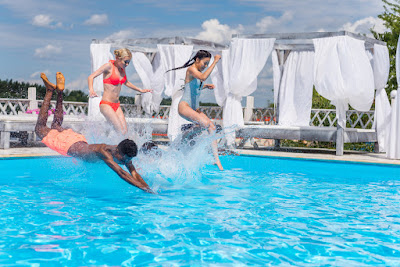Signs That Pool Needs to Be Remodeled
Having a swimming pool in your backyard is an excellent investment for any-day uninterrupted fun, especially during this stay-at-home period. Besides leisure, pools also give your outdoor space a new look and a comfortable home to live. Nonetheless, pools need maintenance to keep them perfect for both your home improvement and maximum enjoyment.
Here are the signs that suggest your pool needs remodeling
Deterioration is Evident Through Cracked Walls
Signs of cracks on walls often mean there is a significant underlying problem in your pool. Though, there are chances of a peeling problem; this can as well progress into deep cracks that cause leaks. Leakages consequently cause weakening of the entire structure. A structure with structural integrity issues that are structurally compromised often leads to disasters that can be mitigated by redesigning and remodeling your pool. Minor repairs could help, but recurrences of cracks are likely to occur.
It's Just Time for Change, and You Know It
If you bought a house with a pool or had installed one decade ago, you may start feeling that the old-fashioned design isn't "working" for you anymore. Whether the design has outlived its time or its simply not meeting your needs, it's time for remodeling and installing all modern features that advanced technology and skill sets have to offer. What's more, renovating your swimming pool allows you to have the freedom to add a fresh touch and personality to your property.
The Surface Is Wearing off
Cleaning the floor of your pool is essential to maintain hygiene and pool water chemistry. But when you notice a deterioration of any kind on the floor surface, it is a sign of you need resurfacing. Swimming pool floors are built to last and often begin relapsing over time. When it happens, the underlying material gets exposed, in turn, leaching toxic substances into the pool. As to keep your pool safe and beautiful, it is vital to preserving the structural integrity by choosing to re-plaster.
Costly Heater Use
Swimming pools built more than ten years ago tend to consume more energy and can dent your wallet due to increased energy bills. Technology has taken over in today's world, and it is essential to keep energy costs low. It is also a great way to protect our environment. But when your pool seems to consume more and more every day, you need to look for alternative energy-efficient components. Such renovations help you maintain your ongoing bills low and stimulate sustainability.
Note: Modern energy-efficient poop pumps can save you anywhere between 30 and 45 percent of your electrical bills than standard pumps.
Needs Constant Repairs
Pools consist of many components that operate independently adjoined to make your oasis livable. If you begin making repairs, it should be a one-time thing unless it occurs on other parts. But if you experience repetitive repairs, then it is time to go for remodeling and eliminate the problem on its entirely. Besides, frequent repairs are costly and can lead to more stressful situations. Remodeling, therefore, saves you additional cash and upgrades your pool as well.
Safety Improvements
Families with kids can face challenges of taking care of toddlers from getting injured in insecure pools. If your family grows and your pool is outdated with limited security features, it is a sign that you need remodeling. Install advance safety features to keep your family safe and free against injuries. If it is not time to upgrade yet, esquire for safety tools. For instance, you can upgrade your pool by surrounding it with a 4.5+ foot fence with a self-latching and closing entryway. Also, you can add an alarm system for additional security.
Give your swimming pool a new look and avoid additional costs of repair with modern remodeling techniques. When you notice the above signs in your pool, then it is time to call for professionals and have a "people friendly" pool once again.



Comments
Post a Comment